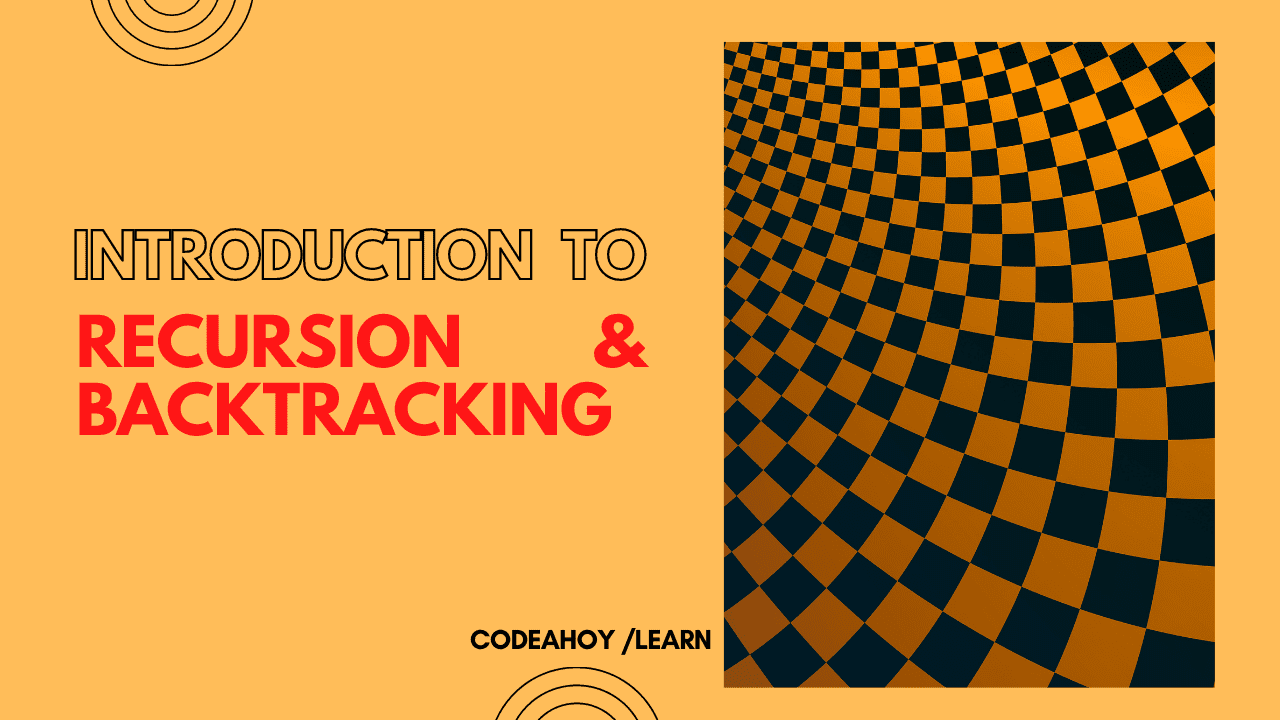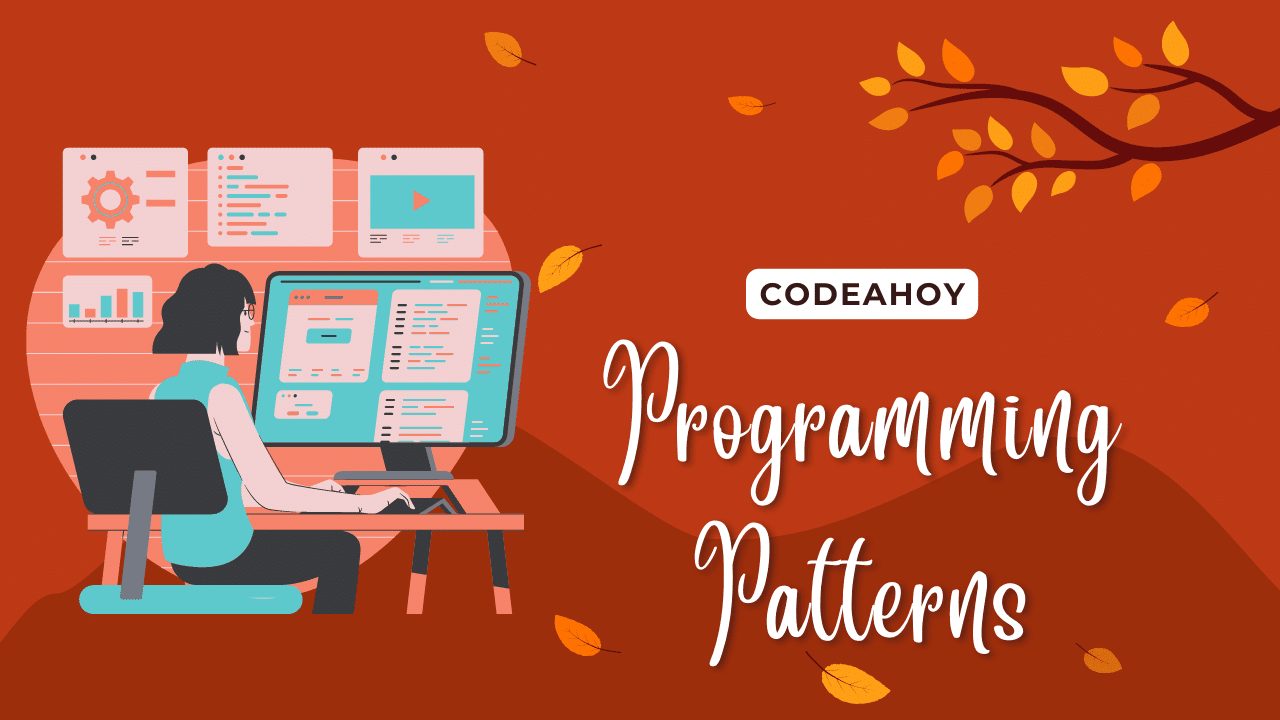Books / Applied Functional Programming Tutorial / Chapter 14
More on Monad Transformers
In Haskell and in functional programming in general, a monad transformer is a type constructor which takes a monad as an argument and returns a monad as a result. Basically said, it is combination of monads in “layers”.
Monad transformers can be pretty useful and make code both efficient and readable when used properly. They can be used to compose features encapsulated by monads – such as state, exception handling, I/O, logging, and others – in a modular way. Typically, a monad transformer is created by generalising an existing monad and applying the resulting monad transformer to the Identity or IO monad yields a monad which is equivalent to the original monad (ignoring any necessary boxing and unboxing).
Definition
Monad transformer is a wrapper type that has:
- a type constructor
tof kind(* -> *) -> * -> *(needs a monadma type) - defined monad operations
returnand>>=(bind) compliant in mo nadic laws fort miffmis a monad - an operation
liftof typem a -> t m athat allows to access the inner monadmand fullfils:lift . return = returnlift (m >>= k) = (lift m) >>= (lift . k)
MonadT, MaybeT and EitherT
When using monad transformers in Haskell, package transformers provide them for basic monads such as Maybe, List, Reader, Writer, or State. Be careful, others are separately in different packages such as Either in either. It is quite common to use T as suffix after monad name to name its transformer.
Maybe with IO
As was already said, monad transformers are used as wrapper types to combine monads with other common features provided by different monads, for example, IO with actions like putStrLn or getLine. Why would someone need such a combination? Why not use those monads in a normal way?
main :: IO
main = do
maybeUserName <- readUserName
case maybeUserName of
Nothing -> print “Invalid user name!”
Just (uName) -> do
maybeEmail <- readEmail
case maybeEmail of
Nothing -> print “Invalid email!”
Just (email) -> do
maybePassword <- readPassword
Case maybePassword of
Nothing -> print “Invalid Password”
Just password -> login uName email password
readUserName :: IO (Maybe String)
readUserName = do
str <- getLIne
if length str > 5
then return $ Just str
else return Nothing
readEmail :: IO (Maybe String)
...
readPassword :: IO (Maybe String)
...
login :: String -> String -> String -> IO ()
...
By using monad transformer MaybeT IO that wraps IO actions the code can get much more readable and efficient. It is also better in terms of extensibility and modularity when you want to replace IO, for example.
newtype MaybeT m a = MaybeT { runMaybeT :: m (Maybe a) }
instance (Monad m) => Monad (MaybeT m) where
return = lift . return
x >>= f = MaybeT $ do
v <- runMaybeT x
case v of
Nothing -> return Nothing
Just y -> runMaybeT (f y)
It is just a newtype that inserts maybe into some monad. Function return is then just lifted for this monad transformer and bind >>= works naturally for Maybe type, returns Nothing if Nothing is wrapped and evaluates with value from Just otherwise.
readUserName :: MaybeT IO String
readUserName = MaybeT $ do
str <- getLine
if length str > 5
then return $ Just str
else return Nothing
The code is then pretty readable and understandable on the first sight, no more bothersome nested ifs or cases. It is also better for maintenance obviously. Similarly it works for EitherT where it is important that in the inner monad (such as IO) is only the type of Right values and not Lefts.
newtype EitherT e m a = EitherT { runEitherT :: m (Either e a) }
instance Monad m => Monad (EitherT e m) where
return a = EitherT $ return (Right a)
m >>= k = EitherT $ do
a <- runEitherT m
case a of
Left l -> return (Left l)
Right r -> runEitherT (k r)
More Layers of Monads
Monad transformers are as shown again monads, that means that you can wrap monad transfomers in monad transformers!
type Env = (Maybe String, Maybe String, Maybe String)
readUserName :: MaybeT (ReaderT Env IO) String
readUserName = MaybeT $ do
(maybeOldUser, _, _) <- ask
case maybeOldUser of
Just str -> return str
Nothing -> do
-- lift allows normal IO functions from inside ReaderT Env IO!
input <- lift getLine
if length input > 5
then return (Just input)
else return Nothing
But as you can see that to get into inner layers more lifts are needed… In such cases, some helper functions and naming your transformer is quite handy.
type TripleMonad a = MaybeT (ReaderT Env IO) a
performReader :: ReaderT Env IO a -> TripleMonad a
performReader = lift
performIO :: IO a -> TripleMonad a
performIO = lift . lift
readUserName :: TripleMonad String
readUserName = do
(maybeOldUser, _, _) <- performReader ask
case maybeOldUser of
Just str -> return str
Nothing -> do
input <- performIO getLine
if length input > 5
then return (Just input)
else return Nothing
Other Way for Transformers
As the other way around, there are some typeclasses which allow you to make certain assumptions about the monad stack below inside transformers. For instance, you often don’t care what the exact stack is, but you just need IO to exist somewhere in the layers because you want to do IO actions. For this purpose, there is typeclass MonadIO (also from transformers package).
class (Monad m) => MonadIO m where
liftIO :: IO a -> m a
If you create your own monad transformer, you can/should make it instance of MonadIO in order to allow anyone to use it in generic way to perform IO actions using standard liftIO function.
type TripleMonad a = MaybeT (ReaderT Env IO) a
performReader :: ReaderT Env IO a -> TripleMonad a
performReader = lift
performIO :: IO a -> TripleMonad a
performIO = lift . lift
instance MonadIO (TripleMonad a) where
liftIO = performIO
-- This generic function can be now used with our TripleMonad
debugFunc :: (MonadIO m) => String -> m a
debugFunc input = do
liftIO $ putStrLn "Interpreting Input: " ++ input
liftIO $ putStrLn "Cool huh?!"
Example from DS Wizard
We can show some real use case from larger Haskell application - Data Stewardship Wizard (server). Monad transformers are used, for instance, to have a nice and modular application context:
module Model.Context.AppContext where
import Control.Applicative (Applicative)
import Control.Monad.IO.Class (MonadIO)
import Control.Monad.Logger (LoggingT, MonadLogger)
import Control.Monad.Reader (MonadReader, ReaderT)
import qualified Data.UUID as U
import Database.Persist.MongoDB (ConnectionPool)
import Network.AMQP (Channel)
import Network.HTTP.Client (Manager)
import Api.Resource.User.UserDTO
import Model.Config.AppConfig
import Model.Config.BuildInfoConfig
data AppContext = AppContext
{ _appContextAppConfig :: AppConfig
, _appContextBuildInfoConfig :: BuildInfoConfig
, _appContextPool :: ConnectionPool
, _appContextMsgChannel :: Maybe Channel
, _appContextHttpClientManager :: Manager
, _appContextTraceUuid :: U.UUID
, _appContextCurrentUser :: Maybe UserDTO
}
newtype AppContextM a = AppContextM
{ runAppContextM :: ReaderT AppContext (LoggingT IO) a
} deriving (Applicative, Functor, Monad, MonadIO, MonadReader AppContext, MonadLogger)
Thanks to its default behaviour, instances of typeclasses can be easily derived (notice mainly MonadIO). This AppContextM is used across whole web application for every endpoint or service and carries all necessary resources and information including database connection, configurations, logged user, message queue connection, and others. The best thing is that when needed, it is easy to add something new to the AppContext type (e.g. monitoring service connection) and it won’t break anything!
Now see that you can use IO, MonadReader, and MonadLogger easily in the service:
module Service.User.UserService where
import Control.Lens ((&), (.~), (^.))
import Control.Monad.Reader (asks, liftIO)
import Crypto.PasswordStore
import Data.ByteString.Char8 as BS
import Data.Maybe (fromMaybe)
import Data.Time
import qualified Data.UUID as U
import Api.Resource.ActionKey.ActionKeyDTO
import Api.Resource.User.UserChangeDTO
import Api.Resource.User.UserCreateDTO
import Api.Resource.User.UserDTO
import Api.Resource.User.UserPasswordDTO
import Api.Resource.User.UserProfileChangeDTO
import Api.Resource.User.UserStateDTO
import Database.DAO.User.UserDAO
import LensesConfig
import Localization
import Messaging.Out.Topic.UserTopic
import Model.ActionKey.ActionKey
import Model.Config.AppConfig
import Model.Context.AppContext
import Model.Error.Error
import Model.Error.ErrorHelpers
import Model.User.User
import Service.ActionKey.ActionKeyService
import Service.Common
import Service.Mail.Mailer
import Service.User.UserMapper
import Service.User.UserValidation
import Util.Uuid
getUsers :: AppContextM (Either AppError [UserDTO])
getUsers = heFindUsers $ \users -> return . Right $ toDTO <$> users
createUserByAdmin :: UserCreateDTO -> AppContextM (Either AppError UserDTO)
createUserByAdmin reqDto = do
uUuid <- liftIO generateUuid
createUserByAdminWithUuid reqDto uUuid
createUserByAdminWithUuid :: UserCreateDTO -> U.UUID -> AppContextM (Either AppError UserDTO)
createUserByAdminWithUuid reqDto uUuid = do
uPasswordHash <- generatePasswordHash (reqDto ^. password)
dswConfig <- asks _appContextAppConfig
let uRole = fromMaybe (dswConfig ^. roles . defaultRole) (reqDto ^. role)
let uPermissions = getPermissionForRole dswConfig uRole
createUser reqDto uUuid uPasswordHash uRole uPermissions
registrateUser :: UserCreateDTO -> AppContextM (Either AppError UserDTO)
registrateUser reqDto =
heCheckIfRegistrationIsEnabled $ do
uUuid <- liftIO generateUuid
uPasswordHash <- generatePasswordHash (reqDto ^. password)
dswConfig <- asks _appContextAppConfig
let uRole = dswConfig ^. roles . defaultRole
let uPermissions = getPermissionForRole dswConfig uRole
createUser reqDto uUuid uPasswordHash uRole uPermissions
createUser :: UserCreateDTO -> U.UUID -> String -> Role -> [Permission] -> AppContextM (Either AppError UserDTO)
createUser reqDto uUuid uPasswordHash uRole uPermissions =
heValidateUserEmailUniqueness (reqDto ^. email) $ do
now <- liftIO getCurrentTime
let user = fromUserCreateDTO reqDto uUuid uPasswordHash uRole uPermissions now now
insertUser user
heCreateActionKey uUuid RegistrationActionKey $ \actionKey -> do
publishToUserCreatedTopic user
emailResult <- sendRegistrationConfirmationMail (toDTO user) (actionKey ^. hash)
case emailResult of
Left errMessage -> return . Left $ GeneralServerError _ERROR_SERVICE_USER__ACTIVATION_EMAIL_NOT_SENT
_ -> do
sendAnalyticsEmailIfEnabled user
return . Right $ toDTO user
where
sendAnalyticsEmailIfEnabled user = do
dswConfig <- asks _appContextAppConfig
if dswConfig ^. analytics . enabled
then sendRegistrationCreatedAnalyticsMail (toDTO user)
else return $ Right ()
getUserById :: String -> AppContextM (Either AppError UserDTO)
getUserById userUuid = heFindUserById userUuid $ \user -> return . Right $ toDTO user
modifyUser :: String -> UserChangeDTO -> AppContextM (Either AppError UserDTO)
modifyUser userUuid reqDto =
heFindUserById userUuid $ \user ->
heValidateUserChangedEmailUniqueness (reqDto ^. email) (user ^. email) $ do
dswConfig <- asks _appContextAppConfig
updatedUser <- updateUserTimestamp $ fromUserChangeDTO reqDto user (getPermissions dswConfig reqDto user)
updateUserById updatedUser
return . Right . toDTO $ updatedUser
where
getPermissions dswConfig reqDto oldUser =
if (reqDto ^. role) /= (oldUser ^. role)
then getPermissionForRole dswConfig (reqDto ^. role)
else oldUser ^. permissions
modifyProfile :: String -> UserProfileChangeDTO -> AppContextM (Either AppError UserDTO)
modifyProfile userUuid reqDto =
heFindUserById userUuid $ \user ->
heValidateUserChangedEmailUniqueness (reqDto ^. email) (user ^. email) $ do
updatedUser <- updateUserTimestamp $ fromUserProfileChangeDTO reqDto user
updateUserById updatedUser
return . Right . toDTO $ updatedUser
changeUserPasswordByAdmin :: String -> UserPasswordDTO -> AppContextM (Maybe AppError)
changeUserPasswordByAdmin userUuid reqDto =
hmFindUserById userUuid $ \user -> do
passwordHash <- generatePasswordHash (reqDto ^. password)
now <- liftIO getCurrentTime
updateUserPasswordById userUuid passwordHash now
return Nothing
changeCurrentUserPassword :: String -> UserPasswordDTO -> AppContextM (Maybe AppError)
changeCurrentUserPassword userUuid reqDto =
hmFindUserById userUuid $ \user -> do
passwordHash <- generatePasswordHash (reqDto ^. password)
now <- liftIO getCurrentTime
updateUserPasswordById userUuid passwordHash now
return Nothing
changeUserPasswordByHash :: String -> Maybe String -> UserPasswordDTO -> AppContextM (Maybe AppError)
changeUserPasswordByHash userUuid maybeHash userPasswordDto =
validateHash maybeHash $ \akHash ->
hmFindUserById userUuid $ \user ->
hmGetActionKeyByHash akHash $ \actionKey -> do
passwordHash <- generatePasswordHash (userPasswordDto ^. password)
now <- liftIO getCurrentTime
updateUserPasswordById userUuid passwordHash now
deleteActionKey (actionKey ^. hash)
return Nothing
where
validateHash maybeHash callback =
case maybeHash of
Just akHash -> callback akHash
Nothing ->
return . Just . createErrorWithErrorMessage $ _ERROR_SERVICE_USER__REQUIRED_ADMIN_ROLE_OR_HASH_IN_QUERY_PARAMS
resetUserPassword :: ActionKeyDTO -> AppContextM (Maybe AppError)
resetUserPassword reqDto =
hmFindUserByEmail (reqDto ^. email) $ \user ->
hmCreateActionKey (user ^. uuid) ForgottenPasswordActionKey $ \actionKey -> do
emailResult <- sendResetPasswordMail (toDTO user) (actionKey ^. hash)
case emailResult of
Left errMessage -> return . Just $ GeneralServerError _ERROR_SERVICE_USER__RECOVERY_EMAIL_NOT_SENT
_ -> return Nothing
changeUserState :: String -> Maybe String -> UserStateDTO -> AppContextM (Maybe AppError)
changeUserState userUuid maybeHash userStateDto =
validateHash maybeHash $ \akHash ->
hmFindUserById userUuid $ \user ->
hmGetActionKeyByHash akHash $ \actionKey -> do
updatedUser <- updateUserTimestamp $ user & active .~ (userStateDto ^. active)
updateUserById updatedUser
deleteActionKey (actionKey ^. hash)
where
validateHash maybeHash callback =
case maybeHash of
Just akHash -> callback akHash
Nothing -> return . Just . createErrorWithErrorMessage $ _ERROR_SERVICE_USER__REQUIRED_HASH_IN_QUERY_PARAMS
deleteUser :: String -> AppContextM (Maybe AppError)
deleteUser userUuid =
hmFindUserById userUuid $ \user -> do
deleteUserById userUuid
return Nothing
-- --------------------------------
-- PRIVATE
-- --------------------------------
getPermissionForRole :: AppConfig -> Role -> [Permission]
getPermissionForRole config role =
case role of
"ADMIN" -> config ^. roles ^. admin
"DATASTEWARD" -> config ^. roles ^. dataSteward
"RESEARCHER" -> config ^. roles ^. researcher
_ -> []
generatePasswordHash :: String -> AppContextM String
generatePasswordHash password = liftIO $ BS.unpack <$> makePassword (BS.pack password) 17
updateUserTimestamp :: User -> AppContextM User
updateUserTimestamp user = do
now <- liftIO getCurrentTime
return $ user & updatedAt .~ Just now
heCheckIfRegistrationIsEnabled = heCheckIfFeatureIsEnabled "Registration" (general . registrationEnabled)
References
- Real World Haskell - Monad Transformers
- Wikibooks - Haskell/Monad Transformers
- Wikipedia - Monad Transformer
- Monday Morning Haskell - Monads 6 = source of most of the examples
- A Gentle Introduction to Monad Transformers
- A Gentle Introduction to Monad Transformers
- Monad Transformers aren’t hard!
- Haskell Wiki - Monad Transformers Explained




